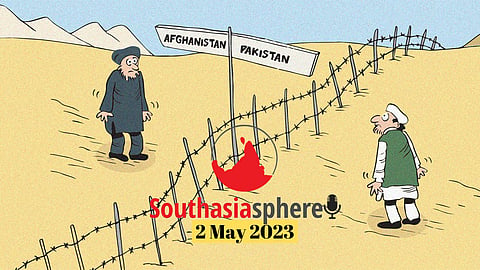Marriage equality in India, fencing the Durand line, wrestlers’ protests and more
Southasiasphere is our roundup of news events and analysis of regional affairs, now out every two weeks. If you are a member, you will automatically receive links to new episodes in your inbox. If you are not yet a member, you can still get episode links for free by signing up here.
In this episode, we talk about ongoing court cases on marriage equality in India, decriminalisation of same-sex relationships in Sri Lanka, and recognition of foreign same-sex spouses in Nepal. We also talk about the fencing of the Durand Line between Pakistan and Afghanistan.
For "Around Southasia in 5 minutes", we'll be talking about April marking 10 years since the collapse of Rana Plaza in Bangladesh, and 8 years since the 2015 earthquake in Nepal, as well as developments related to the acquittal of 69 Hindus who were accused of murder during the 2002 Gujarat riots in India. We'll also be talking about Bhutan's cryptocurrency holdings, voter data theft and manipulation in the lead up to Karnataka's state elections, revelations around a bribe impacting the X-Press Pearl disaster litigation in Sri Lanka, wrestlers' protests in India, and the last photos of Japanese photojournalist Kenji Nagai, who was killed in Myanmar.

